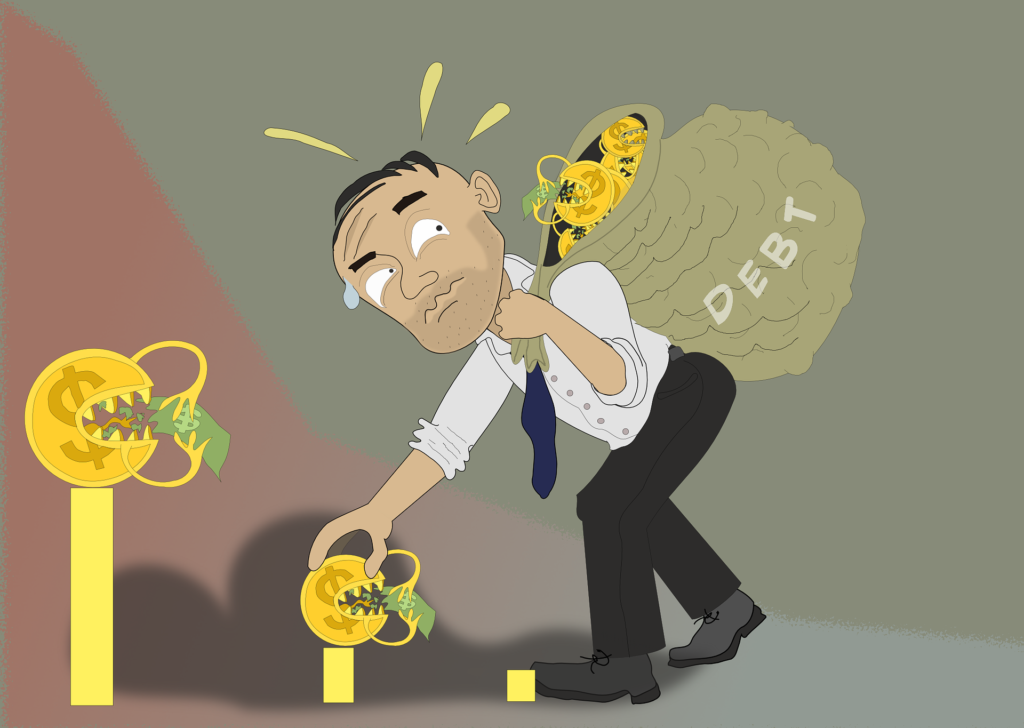Interest rates in Egypt are expected to remain unchanged until the end of the current fiscal year 2023/2024, which concludes at the end of June. This follows the recent significant actions taken by the Central Bank of Egypt (CBE), including a notable increase in key interest rates and the nearly unrestricted flotation of the Egyptian pound, representing the largest policy adjustment by the CBE since initiating monetary tightening measures in response to the repercussions of the Russia-Ukraine conflict in March 2022.
The Monetary Policy Committee (MPC) is set to convene for the final time in the current fiscal year on May 23, after canceling the previously scheduled meeting for March 28.
In an unscheduled meeting held in March, the CBE’s MPC raised key interest rates by 6% (600 basis points), marking the highest single increase in the past five years.
Consequently, the overnight deposit rate, the overnight lending rate, and the main operation rate were adjusted to 27.25%, 28.25%, and 27.75%, respectively. Additionally, the discount rate was raised to 27.75%. This hike brings the total increase in CBE interest rates to 6% since January and 11% over the last 15 months.
The CBE justified its decision by stating that the move aimed to expedite the monetary tightening process to accelerate the disinflation trajectory and reduce underlying inflation.
Further hikes?
Ramona Moubarak, head of MENA Country Risk at BMI, one of Fitch Solutions’s firms, told Business Monthly, “The hike exceeded both our expectations and the consensus.” “At BMI we thought that the CBE would be more cautious in its tightening cycle and would tighten by 3% to prevent adding more pressure on the economy. Nonetheless, it is a positive step that signals the CBE’s seriousness about reducing inflation,” she added.
Moubarak explained that economic growth is expected to decelerate to 3.2% in FY2023/2024. She also highlighted concerning aspects of public finances, including the fact that interest payments consume over half of government revenues, and the debt level is nearing 100% of GDP.
She noted that raising the key interest rates will impact demand dynamics and provide support to the Egyptian pound, aiding in the containment of inflation.
Despite a four-month decline, Egypt’s headline inflation reversed course in February, reaching a record level of 219.4 points, translating to 36% compared to the previous month’s 31.2%. This data, reported by the Central Agency for Public Mobilization and Statistics (CAPMAS), still exceeds the CBE’s target range of 7% (±2%) by the end of 2024.
“Recent foreign financing deals, including $35 billion from the Ras el-Hekma development deal, $8 billion from the IMF, $8 billion from the European Union, and over $6 billion from the World Bank, have mitigated FX risks and bolstered confidence in the Egyptian currency,” Moubarak told Business Monthly.
EGP impact
With FX risk diminishing and government debt yields becoming more attractive post-hike, portfolio investors have reentered the Egyptian debt market, according to Moubarak.
She noted that the positive shock and significant FX inflows have strengthened the Egyptian pound, from EGP 49.5/1 USD on March 6 to approximately EGP 46.6/1 USD on March 21.
“The pound’s appreciation will help alleviate inflationary pressures and may lead to lower prices, particularly as some goods were priced based on the parallel market rate, which hit a record high near EGP 75/1 USD,” Moubarak forecasted.
Looking ahead, Moubarak observed that the CBE’s monetary tightening cycle appears to have concluded.
“We suspect that the CBE had access to the February inflation print, released on March 10, which surprised both us and the markets by accelerating to 35.7% year-on-year (11.4% month-on-month). This suggests that the significant hike, surpassing our expectations, had already factored in the inflation surge and the ensuing inflationary pressures resulting from the currency depreciation that began on March 6,” Moubarak noted.
She further noted that the strengthening of the EGP, along with concerns surrounding public finances and economic activity, may deter the CBE from pursuing additional hikes, despite expectations of short-term inflationary pressures that could surpass the record high of 38% seen in September 2023.
Moubarak projected inflation to average around 35% in 2024, exceeding the 33.9% recorded in 2023.
Meanwhile, Hany Abou El-Fotouh, a banking expert and CEO of Alraya Consulting, emphasized to Business Monthly the significant challenges facing the CBE in managing interest rates amidst current global economic conditions. These challenges prompted the CBE to further devalue the EGP and increase key interest rates to mitigate inflation, attract foreign investments, and stabilize the Egyptian pound.
Abou El-Fotouh highlighted the pivotal roles of factors such as high inflation rates, economic growth, global economic conditions, and investor expectations in shaping interest rate trajectories. He anticipates the continuation of a tight monetary policy in the near term as the CBE evaluates the impact of its policy decisions on inflation and economic growth.
However, both experts cautioned that the path of interest rates remains uncertain, contingent upon various variable factors. They advised investors, companies, and individuals to exercise caution and conduct thorough risk assessments when making investment and financing decisions in the current economic climate.







